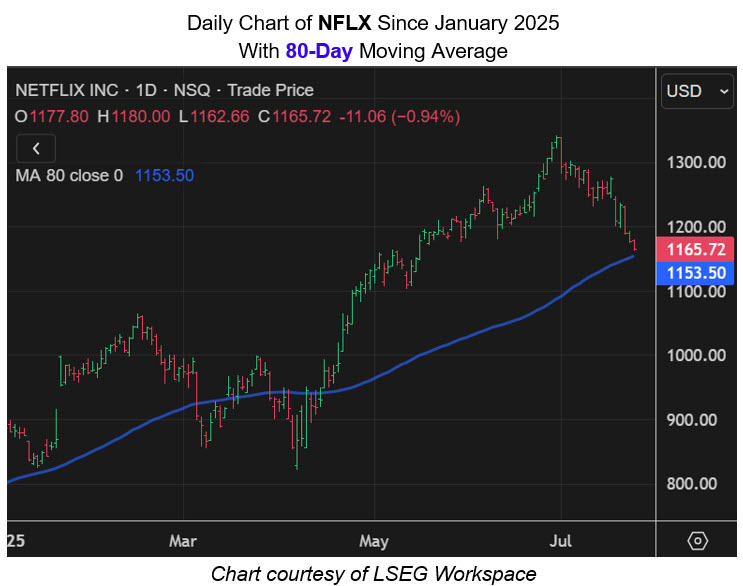
The 80-day moving average could put an end to NFLX's pullback
Netflix Inc (NASDAQ:NFLX) stock was last seen down 0.9% at $1,165.72, trading at its lowest level since May 15 and on track for its third-straight daily loss, as well as its fourth consecutive week in the red. The security is up 30.8% in 2025, however, and sports an even healthier 83.4% year-over-year lead. Even better, a historically bullish trendline could soon help the shares move closer to their June 30, record high of $1,341.15.
Per Schaeffer's Senior Quantitative Analyst Rocky White, NFLX's recent pullback placed it within one standard deviation of its 80-day moving average. Shares were above this trendline in at least eight of the last 10 trading days, and spent 80% of the past two months above it.
Within these parameters, eight other signals occurred over the past three years, after which the stock was higher one month later 88% of the time, averaging a 12.2% gain. Should similar move happen, shares would land at $1,307.93 -- just shy of their record peak.

An unwinding of pessimism in the options pits could create additional headwinds. At the International Securities Exchange (ISE), Cboe Options Exchange (CBOE), and NASDAQ OMX PHLX (PHLX), NFLX's 50-day put/call volume ratio sits higher than 96% of annual readings.
Options look affordably priced, making this an ideal time to bet on Netflix stock's next moves. This is per its Schaeffer's Volatility Index (SVI) of 27%, which stands in the 7th percentile of readings from the past year, suggesting options traders are pricing in low volatility expectations.